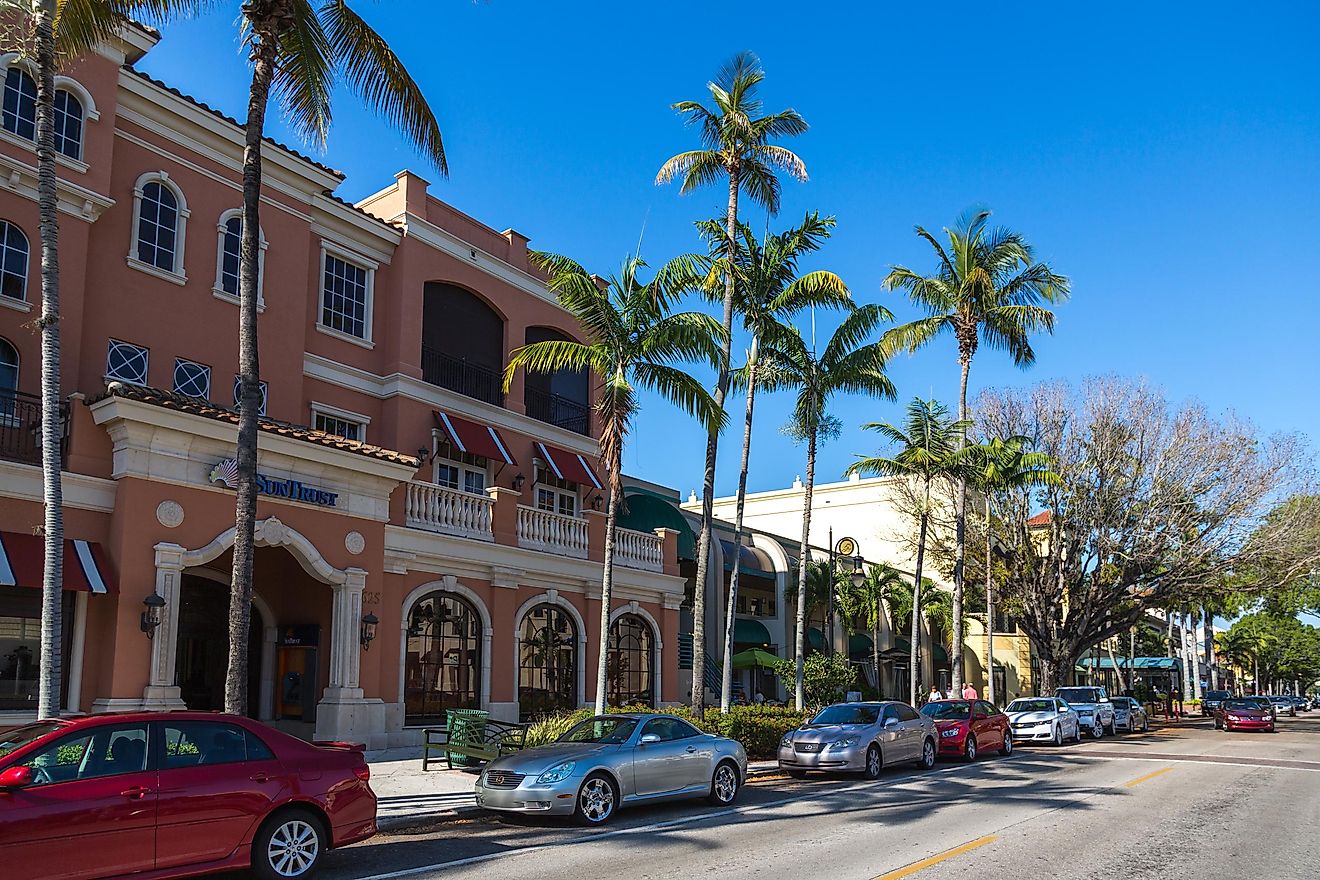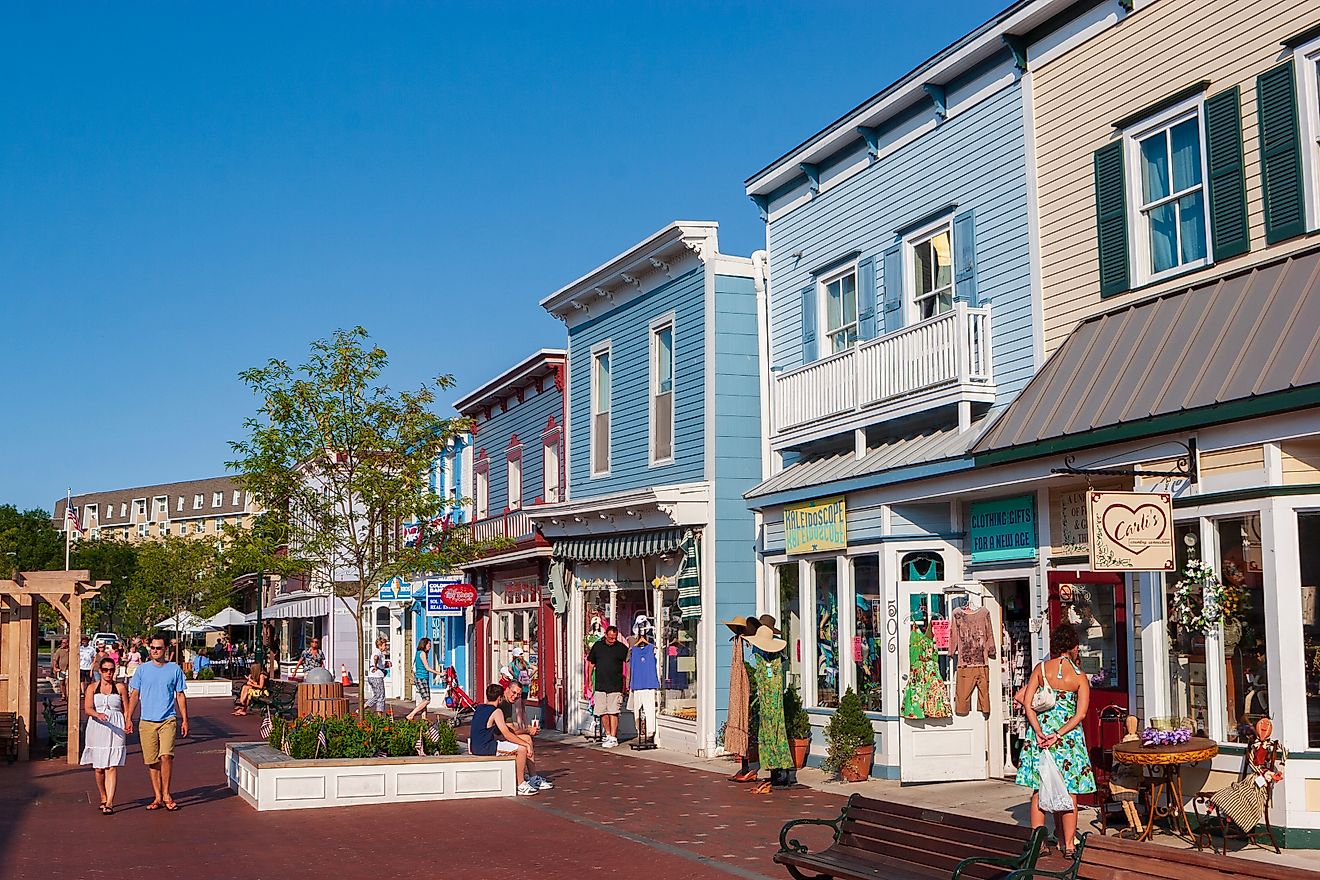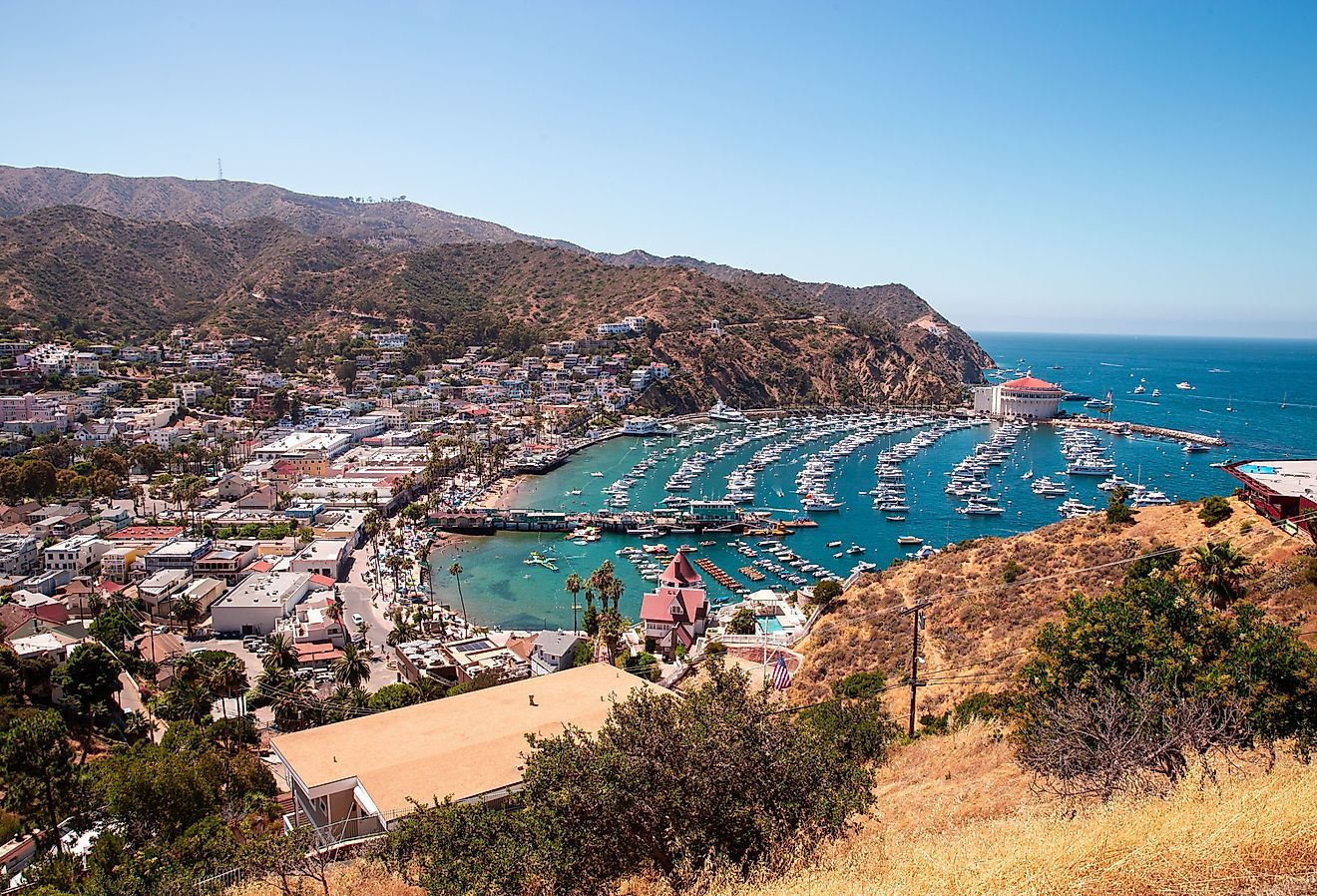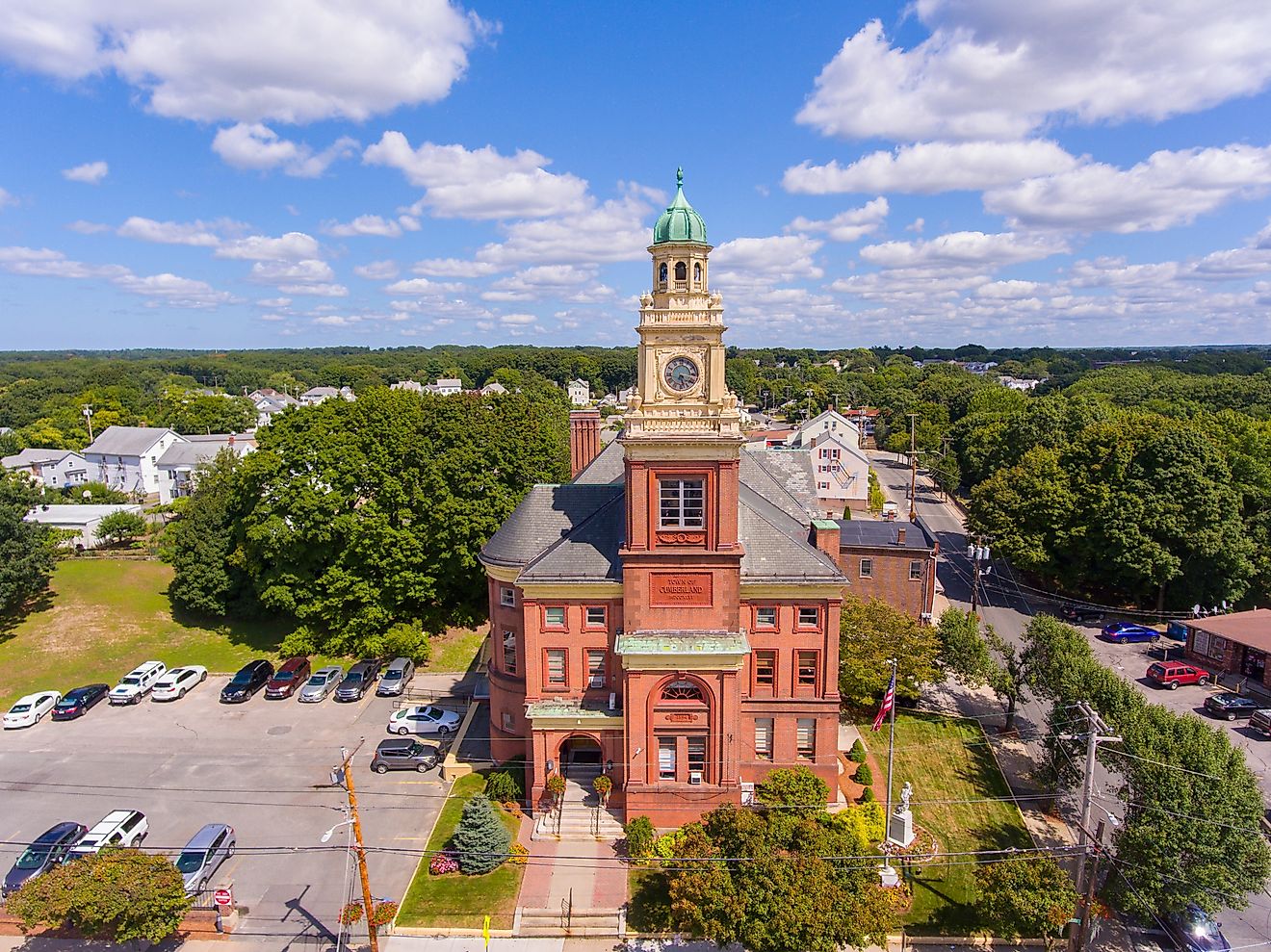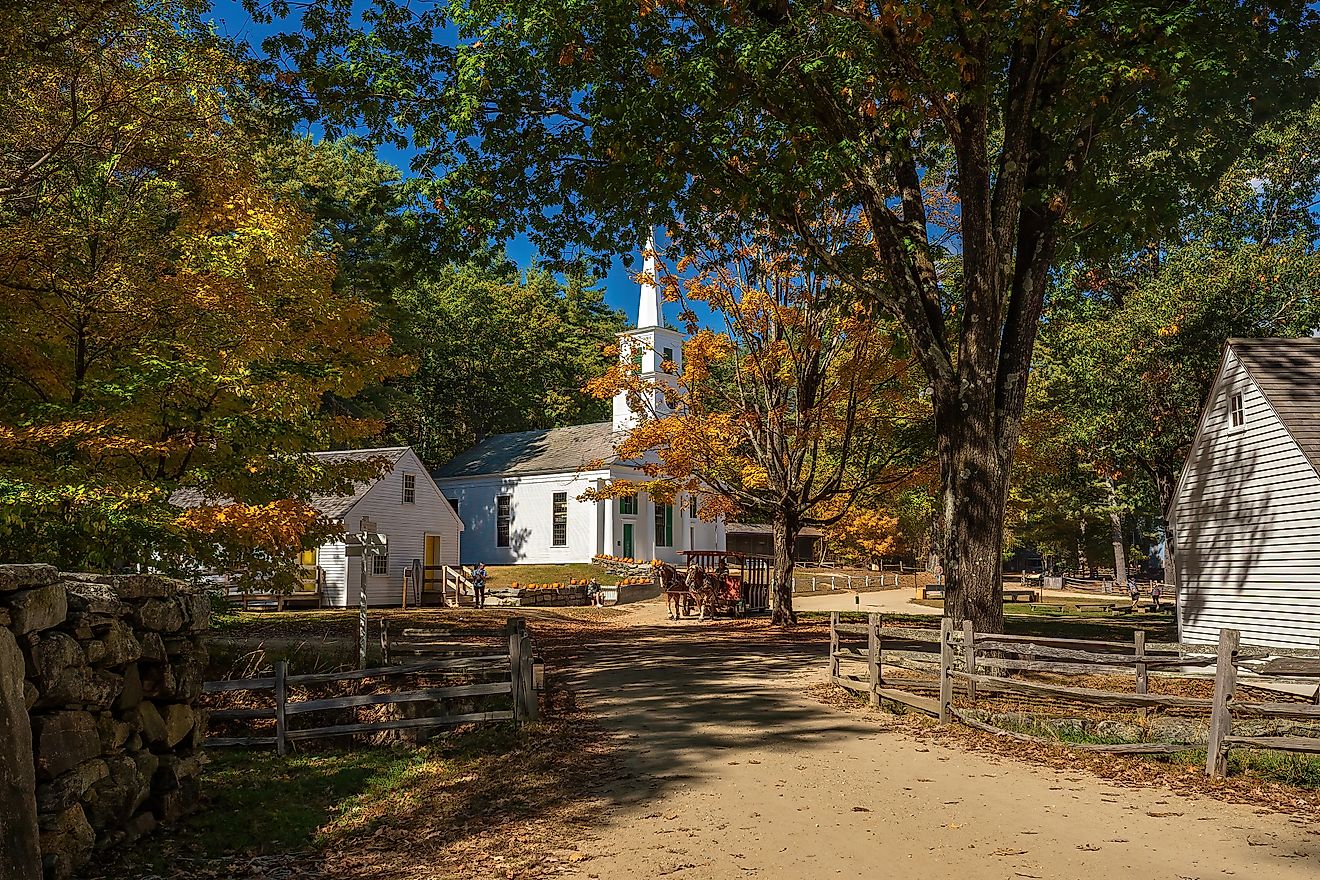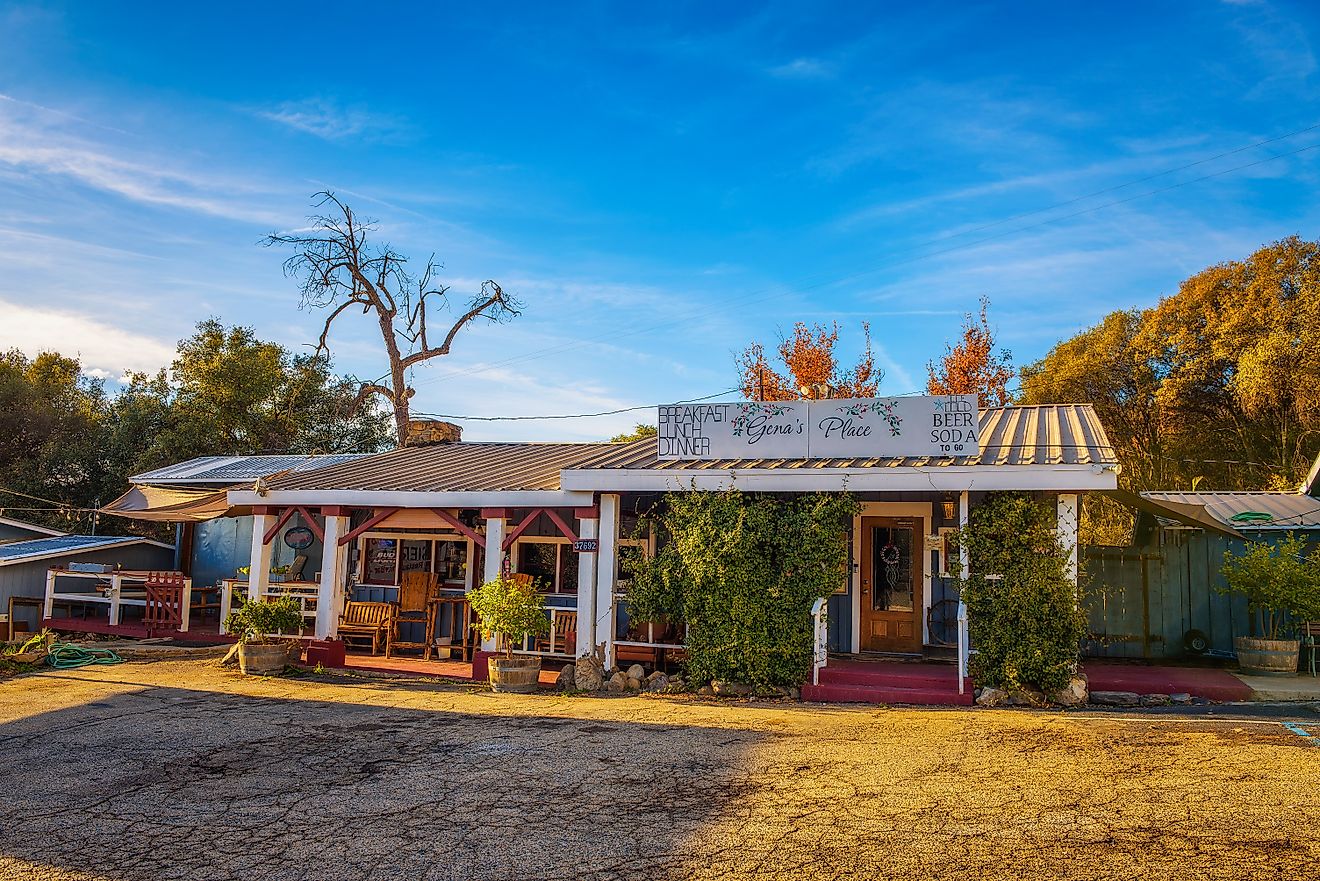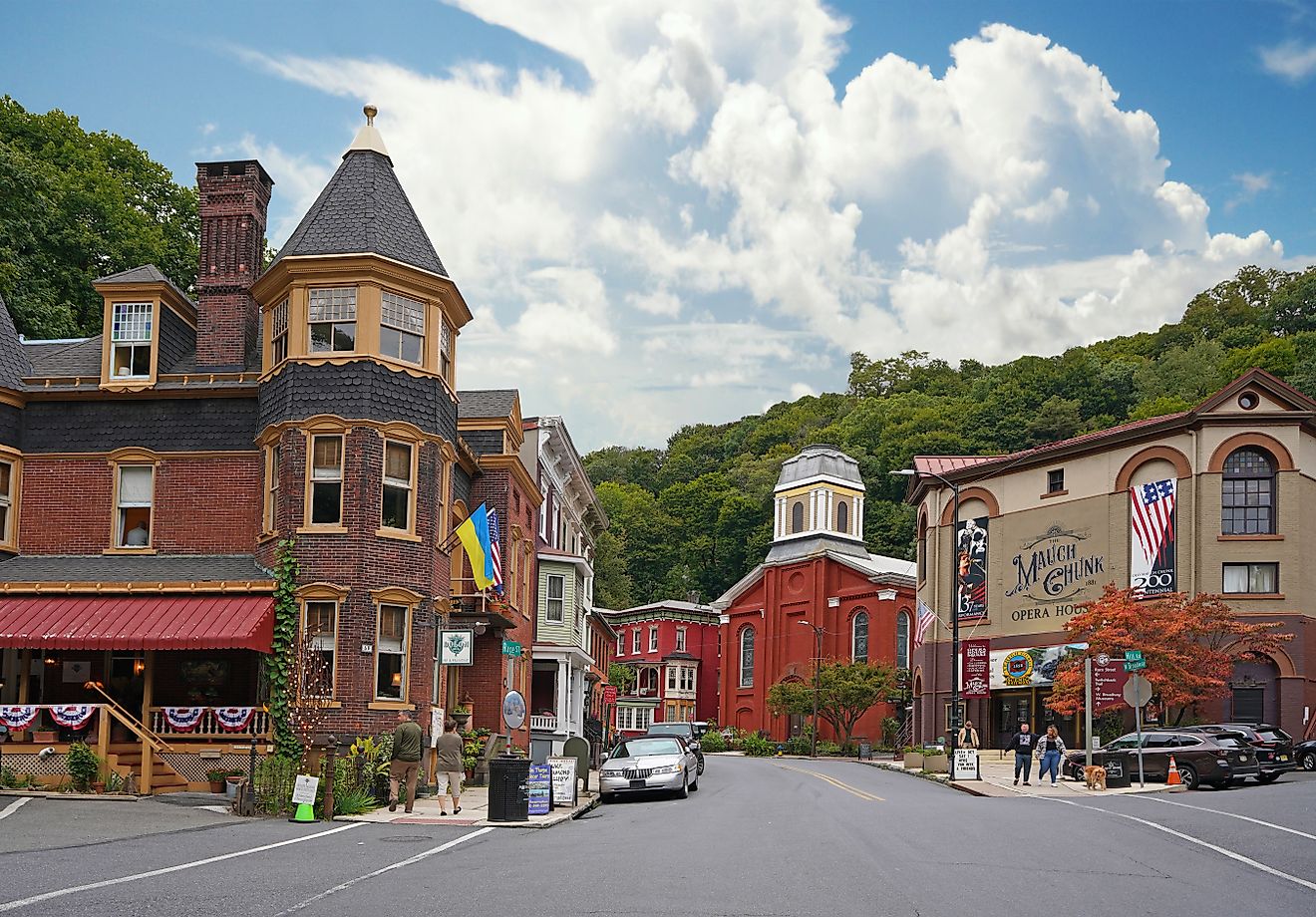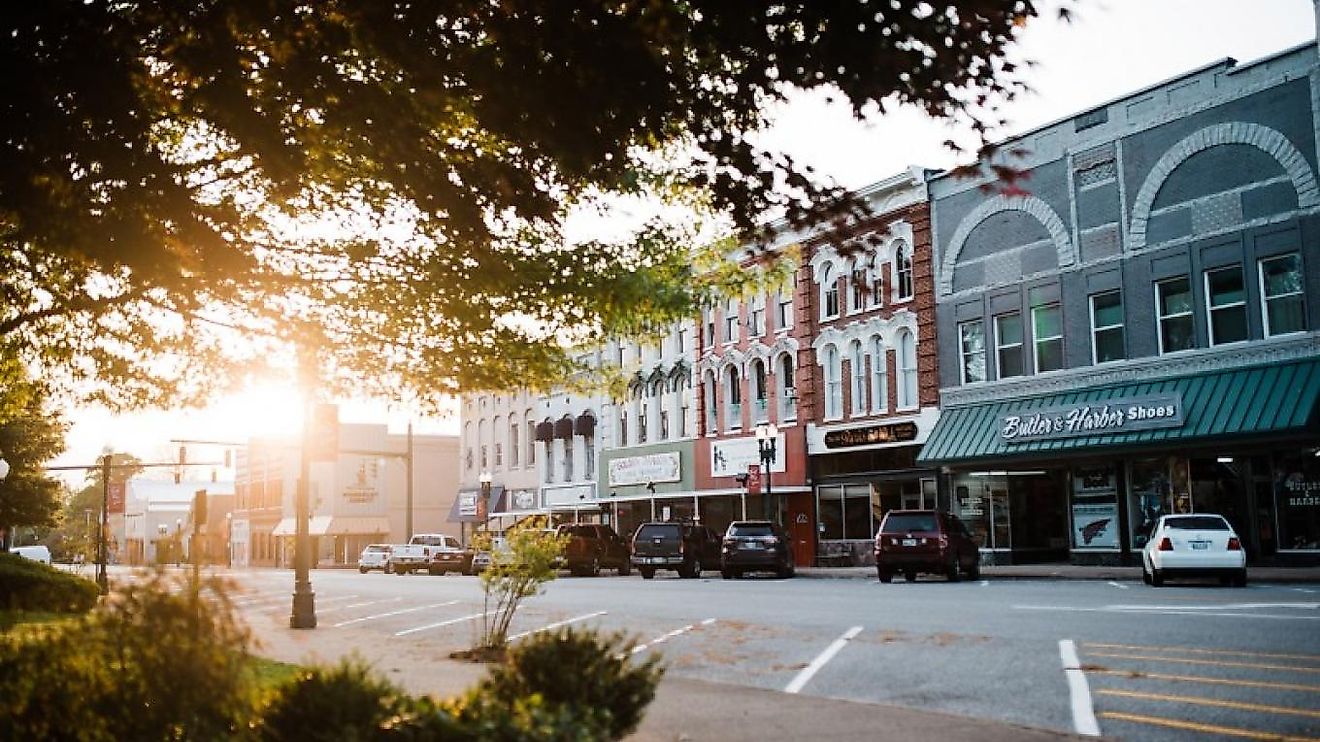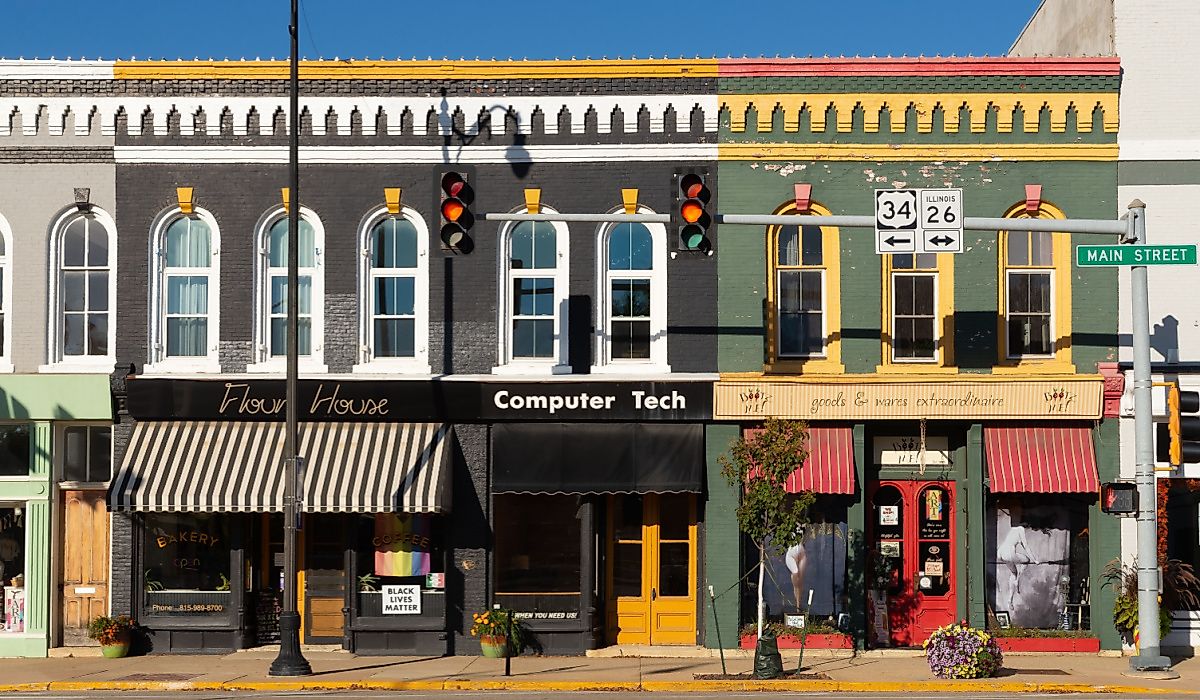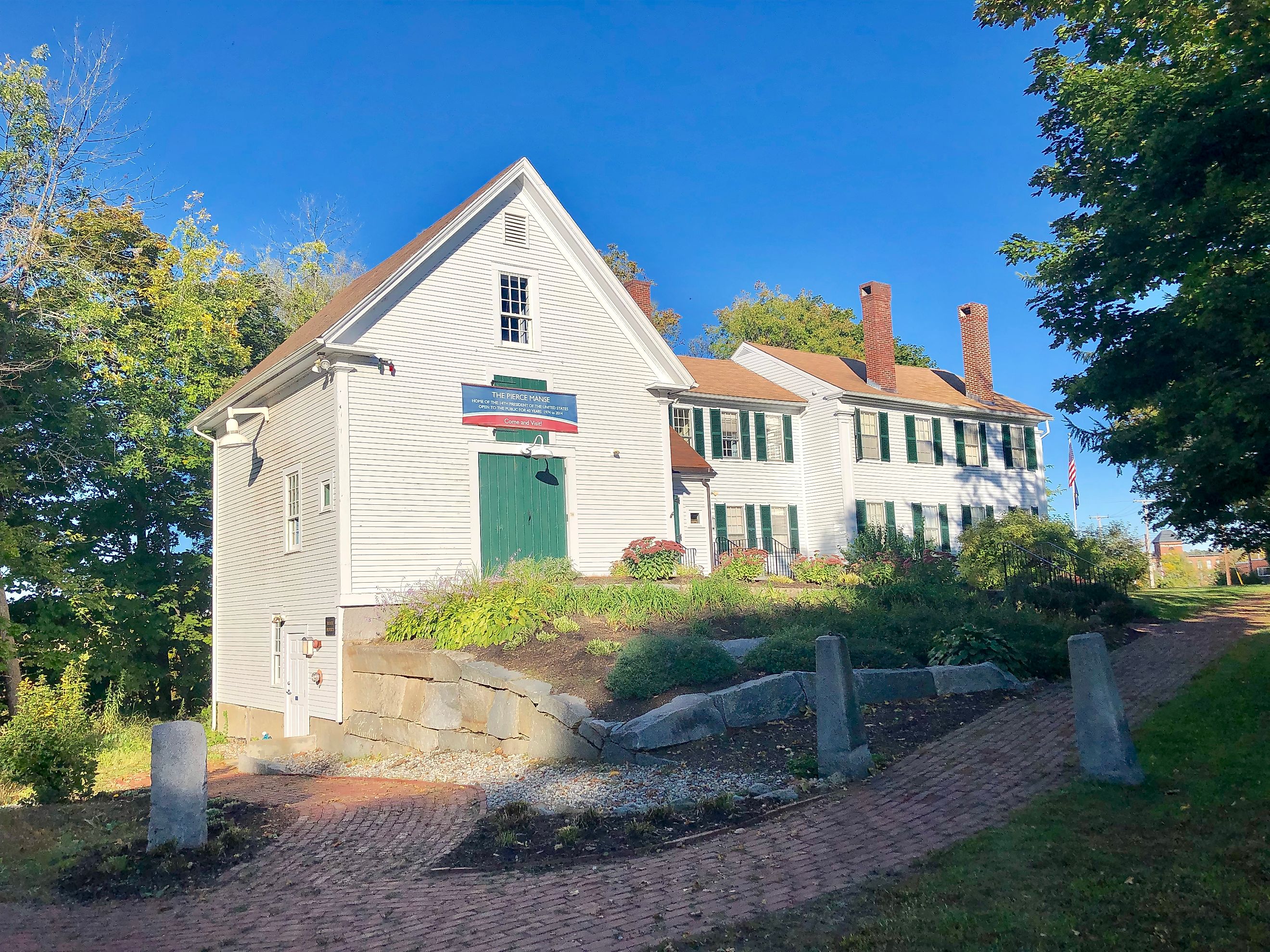
8 Best Museums In New Hampshire
New Hampshire, in New England, was one of the original 13 colonies, so it's easy to imagine its historical significance locally, regionally, and nationally. Thankfully, most of it has been preserved in museums and heritage sites. Choosing the best ones to visit is no easy feat, but these eight rank among the best for their contributions to art, culture, and the preservation of history through exhibits and architecture.
New Hampshire has an interesting mix of culture and history, on display at the Hood Museum of Art near Ivy League Dartmouth University. The gallery often tops "best of" lists for being a landmark in the art world, making it a covetable destination for connoisseurs and novices. No list would be complete without the American Independence Museum, for its contributions to the broader national narrative of freedom and cultural relevance. Here are eight of the best museums in New Hampshire.
Strawbery Banke
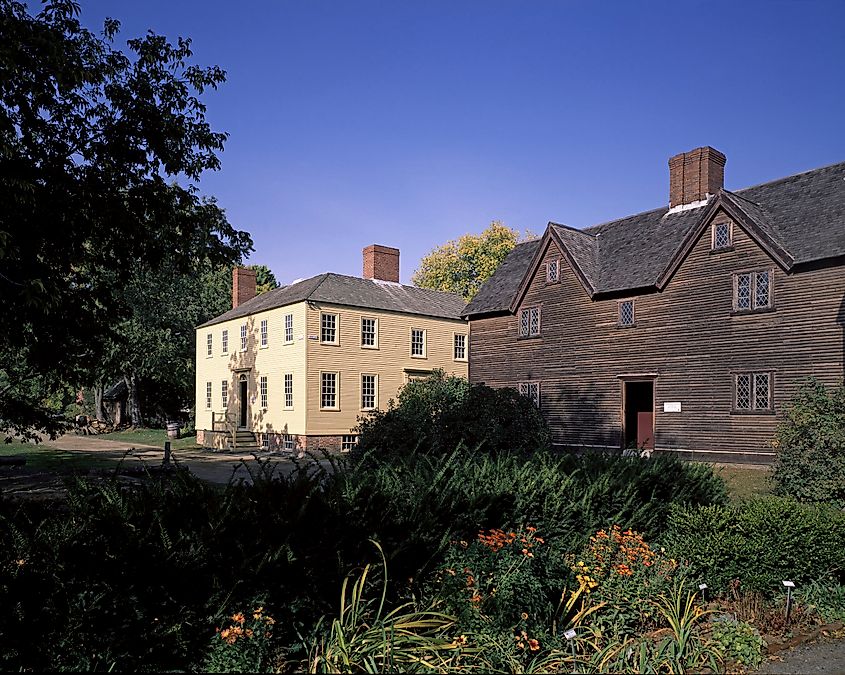
Strawbery Banke in Portsmouth represents the 17th-century colony down to the original spelling of its name. Its region has a storied history of Indigenous peoples, and the museum tells the story of the ten-acre parcel of land known as Puddle Dock. In 1623, English colonists settled in the area and built houses along the Piscataqua River, in a sheltered cove now known as Portsmouth Harbor. After visiting the fabled grounds, stop at the Puddle Dock Restaurant for a modern take on Colonial food to complete your experience.
The Strawbery Banke Museum stands out among other outdoor museums for its fantastic preservation of several historic homes on their original sites over a 350-year evolution. The landmark buildings for the tour include grand mansions and working-class homes, a colonial tavern, and a 1940s copper shop. Visitors are encouraged to tour the heirloom gardens, 10 gardens on ten acres, including a Victorian-era formal garden. Walking the grounds feels like walking through historical periods with tangible evidence of the evolution of this deeply historical region, making Strawbery Banke among the top museums in New Hampshire.
Currier Museum of Art
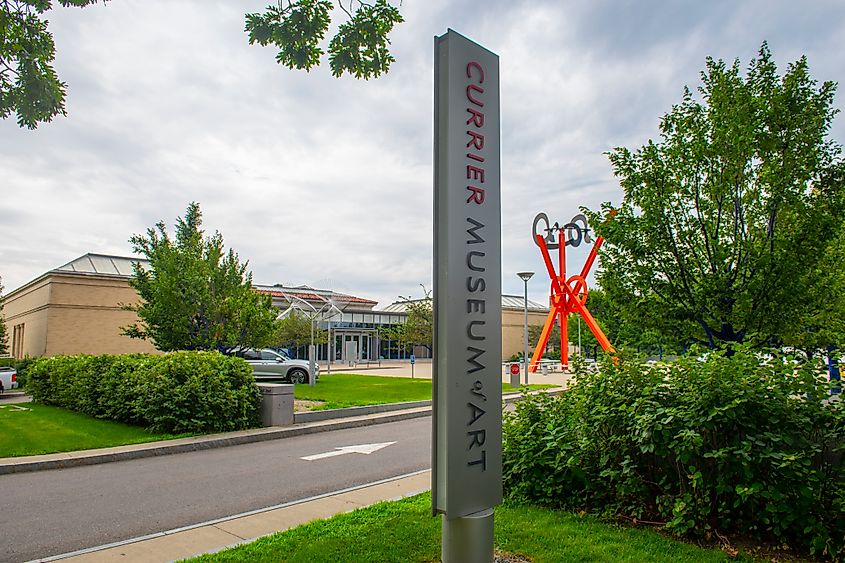
The Currier Museum of Art in Manchester focuses on art centered around the community with a primary goal of inspiring others. It embraces differences and multiple viewpoints in its collection and exhibitions to reach a diverse digital, international, and neighborhood audience. Moody and Hannah Currier conceived the idea for the museum in the late 19th century, and their estate was used to form the Currier Gallery of Art posthumously in 1919.
Among the many thoughtful exhibits are two Frank Lloyd Wright homes, accessible by guided tours. The Currier Museum is the only one in the world with two remarkable designs built in the 1950s. They are also the only Wright buildings open to the public in New England. Several exhibitions rotate throughout the year, including "The After Party: Pastels at the Currier" and "Nicolas Pary and Surrealism: An Artist's Take on the Movement." To underscore the museum's mission to involve the community, an artist-in-residence program connects the viewing audience with art and creative thinking, providing key cultural takeaways for each visitor. Continue your visit by enjoying lunch outside at the Birch on Elm, a short walk from the museum.
American Independence Museum
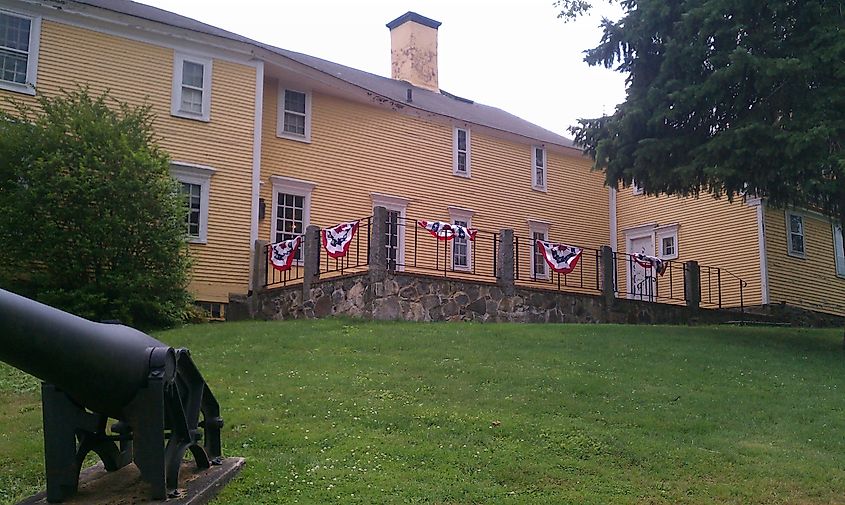
Exeter's American Independence Museum is preparing for the nation's 250th anniversary by celebrating its "We Are One" motto for the next three years. The motto is derived from the ideals made implicit in the signing of the United States Constitution, and the museum is incorporating it into its programs, events, and how the curators and interpreters engage with visitors and organizations. The museum was founded in 1991 to educate the public about the American struggle for freedom and self-governance and to preserve and share its buildings and grounds.
The museum has several initiatives: Bringing History to Life, Building Community, Educating Children and Youth, and Engaging Older Adults. The core initiatives bring history to life with activities such as Storywalk, the American Independence Festival, Spiritualism/Cemetery tour, and Humanities to Go. The initiatives enable guests to engage with history in an immersive way and walk away with a deeper appreciation for America's fight for independence. After strolling the grounds, unwind at Ambrose Restaurant, featuring contemporary cuisine prepared with local ingredients. It provides a way to reflect on the lessons learned from the museum, while remaining in Exeter's heritage.
Canterbury Shaker Village
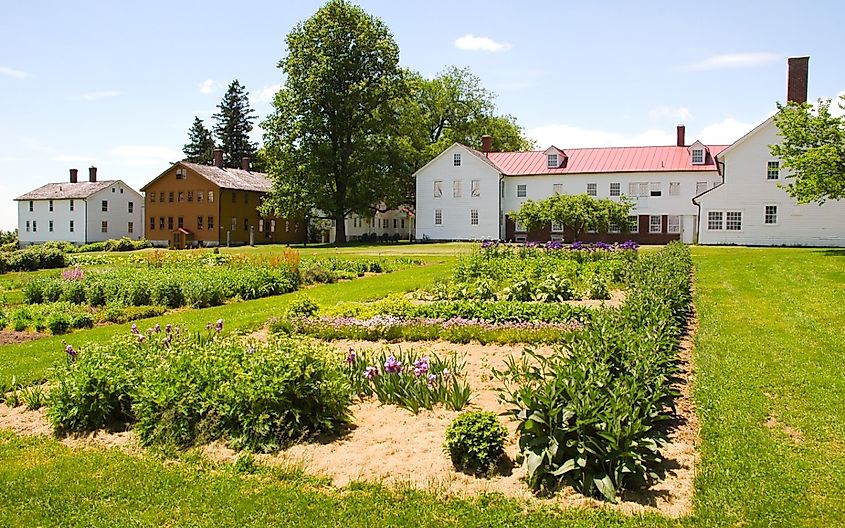
Canterbury Shaker Village preserves and interprets the legacy of the Canterbury Shakers. The National Historic Landmark features 25 original Shaker buildings, four reconstructed Shaker buildings, and 694 acres of forests, trails, and gardens. The village was established in 1792 by the followers of Mother Ann Lee, who formed their seventh community here. At its height in the mid-19th century, the town had over 300 residents, and workers lived in over 100 houses spread over 1,000 acres.
Guided tours lead visitors past 25 original and four reconstructed Shaker buildings, manicured gardens, and charming mill ponds. The tour honors the Shakers' legacy of impacting agriculture, technology, modern architecture, and design. After a tour, stay on the grounds for lunch and shopping. The Village Store specializes in artisan goods made with Shaker-inspired artistry in baskets, boxes, soaps, and candles. The grounds are available for a picnic, or you can visit the nearby Fox Country Smokehouse, a community landmark for over 50 years, four miles from the museum grounds.
The Pierce Manse
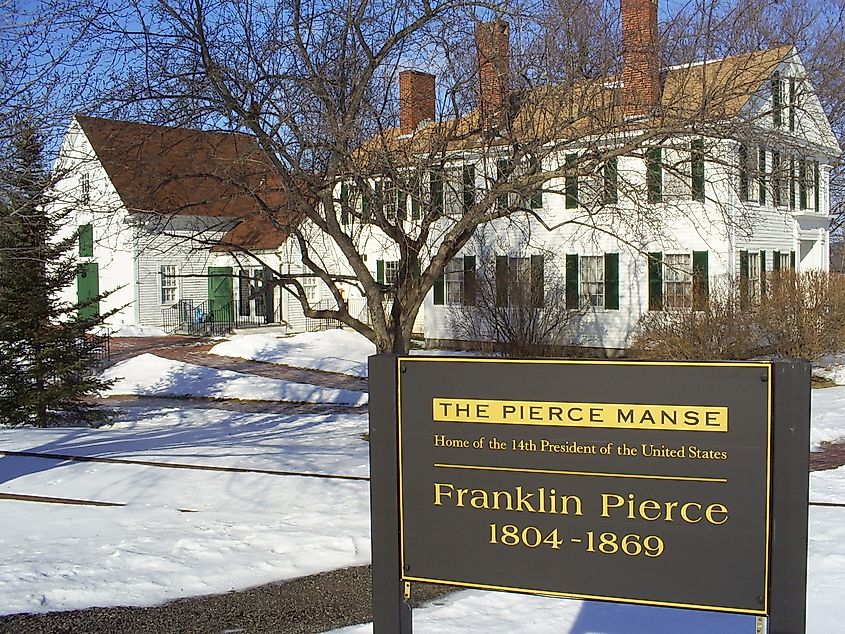
The elegant Pierce Manse in Concord is the preserved home of the 14th President of the United States, Franklin Pierce. The Pierce family lived here from 1842 to 1845, and the residence's name differs from Pierce's childhood home. The current museum features period pieces, exhibitions, and guided tours honoring the New Hampshire native. It was initially located on Montgomery Street in downtown Concord but moved to its current location in 1971 to avoid demolition in an urban renewal project.
The museum's foundation hosts several events throughout the year, including the Brigade Lecture Series, "Rescuing Injured Wildlife," and "Manchester's Airport: Flying Through Time." These events underscore the foundation's mission to preserve and interpret different regional histories. Concord offers numerous restaurants to round out a day at the museum, including Common Man. The American restaurant on Water Street fits the Colonial era theme and provides an immersive experience in this unique cultural hub.
Albacore Museum

Albacore Park in Portsmouth is a National Historic Landmark featuring a maritime history interpretation of the vast history of this essential seaport. The park includes the USS Albacore, built in 1953 as a research submarine, now open to the public. The meticulously maintained submarine is the closest many people get to experiencing life underwater and is a must-see attraction in this region. Albacore Park interprets a significant piece of New Hampshire history, providing an ideal way to engage with this coastal region.
The museum hosts many events, including Memorial Day and International Museum Day, which can be seen on its website calendar. After experiencing the rich maritime history, take a stroll through Portsmouth. It is a pleasant town featuring several seafood restaurants that embrace the maritime heritage, such as Row 34, Jumpin' Jay's Fish Camp, and North Beach Fish Camp.
Explore the Ocean World
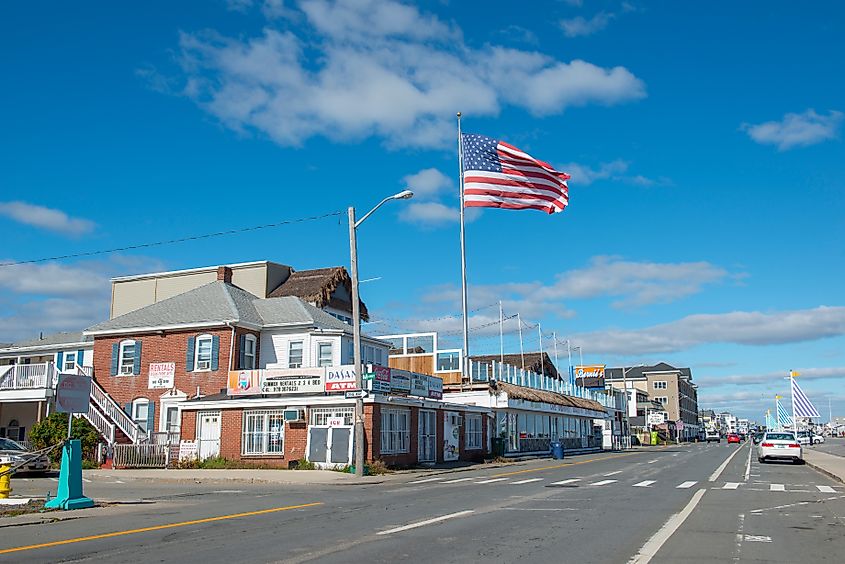
Explore the Ocean World in Hampton Beach, a fantastic way to interact with aquatic life through exhibits, classes, and touch tanks. The oceanarium aims to educate visitors about the importance of the estuarine and oceanic ecosystems of the New Hampshire coast while providing a unique opportunity to view and touch sea animals that they may never otherwise encounter. It educates about the exceptional balance between humans and the oceanic world, primarily in the Gulf of Maine, focusing on responsible commercial fishing throughout this region.
The comprehensive visits include a tour with a biologist, live video presentations, and hands-on learning experiences that educate visitors on the importance of this delicate ecosystem. This is a fantastic place to spend a summer afternoon. The small town is also pleasant to walk around and features family entertainment and restaurants like North of NOLA, The Goat, and Sea Ketch.
Hood Museum of Art
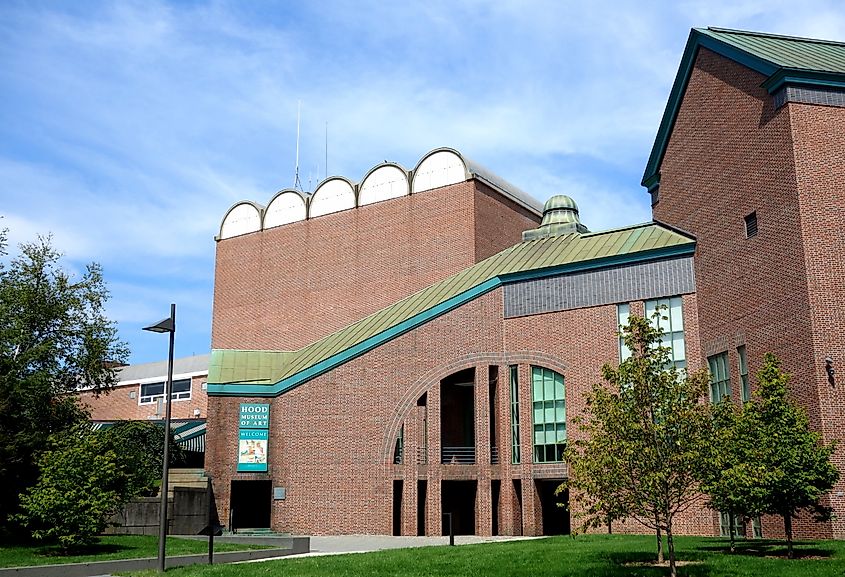
Dartmouth University presents Hanover's Hood Museum of Art, which features elegant works of local and international art. International exhibits focus on African and African Diaspora art and contemporary pieces from other cultures. 2025 is a particularly good time to visit as the museum recently acquired works by Claude Monet. The exhibition, "Monet: Reimagining the French Landscape," celebrates the Impressionists' vision of natural beauty, inspiring viewers to consider Monet's contribution to the art world.
Dartmouth's collections are among the oldest and largest of any college or university in the country and includes over 65,000 exhibits. Among the most critical pieces are six Assyrian stone reliefs from the palace of Ashurnasirpal II (about 900 BCE). One could spend a week at Hood and not run out of elegant works. Hanover's downtown is as sleek as the museum and features lodging, including the Hanover Inn and Six South Street Hotel, which are highlights for any visit.
These are among the best museums in New Hampshire for their unique blend of culture, art, and history. Some, like Explore the Ocean, lean on the scientific site and enable visitors to learn about the world around them. This area has an extensive history, including being one of the original 13 Colonies, and these museums showcase the best of this heritage through programs, exhibitions, and wonderfully preserved architecture.
Art enthusiasts will fall in love with the Hood Museum, while those looking for regional history must visit Albacore Park or the Oceanarium. Collectively, these museums explore the unique history of this region, though each has much to offer on its own. The small towns embracing the museums are packed with local restaurants and boutiques that should be added to a travel itinerary when visiting the area. Visiting the towns is an immersive way to discover why the exhibits are essential and an ideal way to bridge the past with the future.
